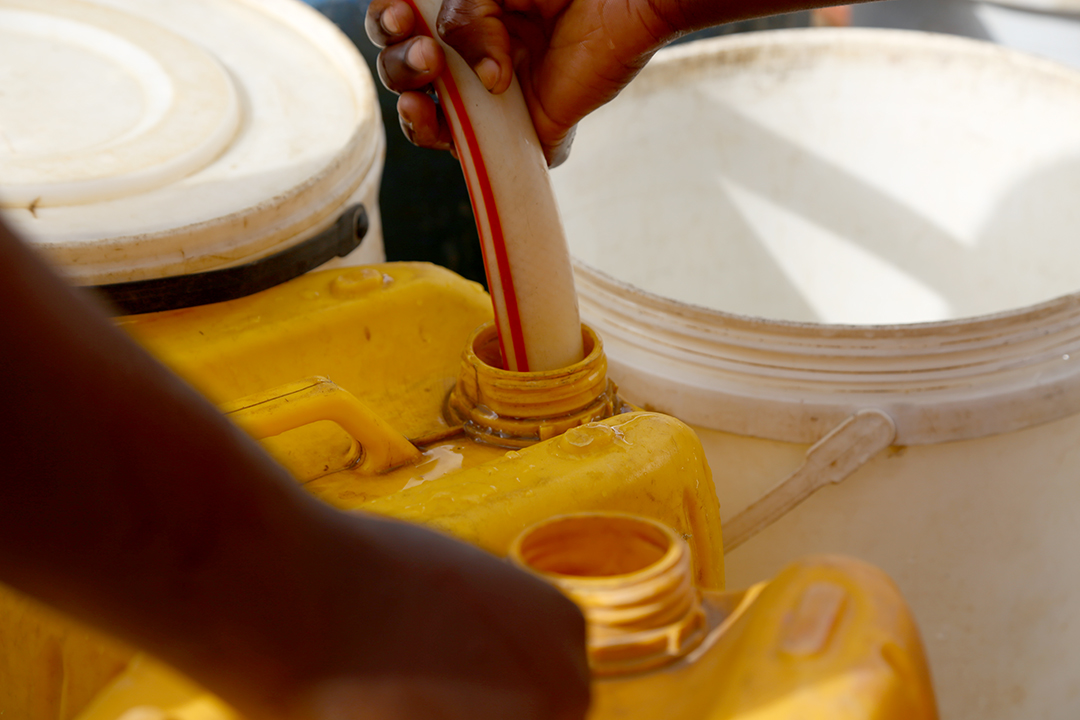
MCC/CPA
Plastic jugs are filled at a water point in Mtendere, a compound on the edge of Lusaka in Zambia, where MCC is helping improve major problems with water and sanitation.
In the fight against poverty, investing in innovative approaches, enhanced technologies and new techniques to improve development outcomes or reduce costs are essential. Partnerships between the public and private sectors are not new, but they are key to reaching people with new technologies and models for services, often with greater efficiency and impact than what could be achieved working alone.
I recently traveled to Zambia’s capital of Lusaka to participate in the public launch of an exciting program that will leverage public-private partnerships to better support access to clean water, reliable sanitation and services to improve the functioning of Lusaka’s drainage system, especially in the city’s poorest areas.
The Innovation Grant Program intends to confront pressing issues affecting Lusaka’s water sector and limiting economic growth in Zambia. Through calls for proposals to introduce improved technology, best practices and targeted services, the grant program aims to decrease incidences of disease spread through contaminated water as well as reduce the cost of sanitation services and business losses from flooding. With improved service delivery in targeted areas, people will spend less on health care, be more productive in their work and abilities to care for their families, kids will miss less school, and businesses will not have to close as often during the rainy season. New models of service delivery can also create new employment opportunities, support entrepreneurship in the city and empower women and youth.
This program will offer the private sector, universities and other organizations in Zambia, the United States and throughout the world, an opportunity to compete for funding in a transparent manner to complement and supplement the other investments in infrastructure and institutional strengthening being carried out through Zambia’s five-year, $355million MCC compact. Together with the Government of Zambia, the Lusaka Water and Sewerage Company and the Lusaka City Council, MCC’s investment will impact more than one million Zambians.
The promise and potential of the Innovation Grant Program will serve the most vulnerable members of society, ensuring that women, children, the poor, and other disadvantaged groups are able to benefit from access to clean water and sanitation services.
Stay tuned: MCA-Zambia will soon announce when it will start accepting proposals. I am excited to see these advances in action!

